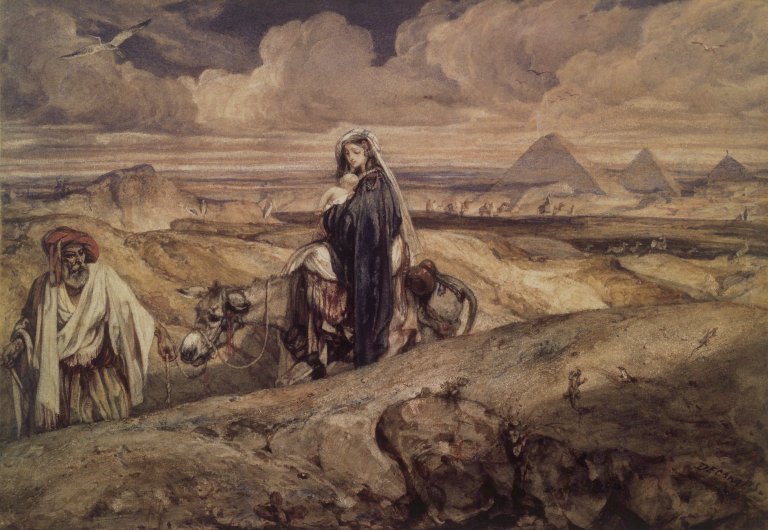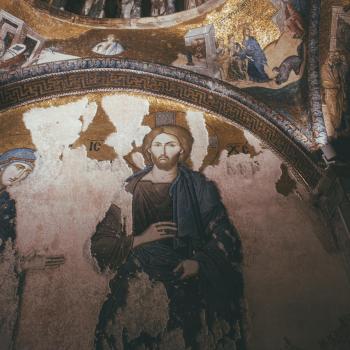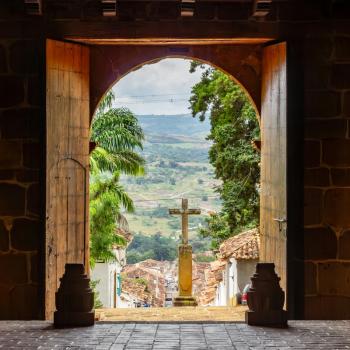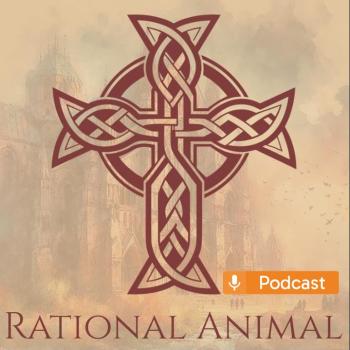Over a century ago, Friedrich Nietzsche proclaimed the death of God – meaning the loss of a passionate and personal commitment to God, the loss of belief, the death of that civilization some refer to, nostalgically, and perhaps fallaciously, as “Christendom.” For Nietzsche, the great European churches were tombs to a dead god.
Just a few decades later, fascist hordes would use the rhetoric of Christianity, culture, faith, and family to commit systematic genocide on European soil. Since then, talk about recovering western Christian culture often looks like a dogwhistle calling for more violence, more racism, more genocide. At the same time, many Christian artists and intellectuals, aware of an emptiness and sterility in white bourgeois culture, turn to Native and non-white cultures for new possibilities of artistic and religious expression. The defenders of a mythic “West” claim to be upholding an ancient tradition that endured for centuries, rising to its peak in the Middle Ages. But the reality is that a diverse, polyphonic, multicultural – dare I say “syncretic”? – Christianity is more true to the spirit of the Middle Ages, just as a radical egalitarianism, rather than hierarchy and clericalism, is more true to the spirit of the early Church.
What does this have to do with Christmas? Christmas in post-Christendom, in – to borrow a phrase from O’Connor – “Christ-haunted” modernity?
Laments about the loss of a religious sense at Christmas time are popular, and I will join in when it comes to the way our festivities have been commercialized, appropriated by Catholicism. But it seems to me to be foreign to the spirit of Christmas to set up rigid boundaries between who may and may not enter into it. Even for those who do not believe, the central meaning of Christmas and the mythic significance of the original Nativity story resonates. We all long for peace on earth. We long for justice for the oppressed. The story of the long exile of the Israelities, their laments over loss, their yearning for a real and physical savior, becomes the story of our humanity. The manger scene, where we assert that heaven came to earth in a savior, God born into our mortal flesh, is also a scene of uncertainty, mystery, confusion – even if two millennia later we have redrawn it as sentimental and comforting, defined it in terms of set theological terms that allow us to draw lines between belief and unbelief.
I referenced O’Connor earlier, and I will reference her again here: she once said of the Eucharist, “if it’s just a symbol, to hell with it.” This quote gets tossed around quite a lot. I used to toss it myself. But now it looks facile to me. It looks like the post-enlightenment certainty of a modern who desires that everything be neatly packaged into strict definitions, for which truth must be fact, and fact verified. For which a symbol is “just a symbol.”
If the manger scene and the Christmas story are “just a symbol” for many who do not practice the Christian religion, we can view that as nihilistic and empty – if we demand absolute assent and are unwilling to live with mystery. We can write this off as weak or insufficient in comparison with our firm creeds.
The problem is that for many throughout history, a place of shadow and uncertainty is where we end up residing. Is God here? Is God real? Is this sense of divinity a message from heaven? Is this bread God’s body? Demanding hard answers may look like the real faith as opposed to mushy uncertainty, but this reduces faith to a series of merely intellectual operations, denying the element of the physical that is present in symbol and myth – denying the power of ritual in the movements of the body, lighting of candles, singing songs, opening doors.
If we believe that God really came into this world for the salvation of all, at Christmas time, we should not be building walls to cage the divine and keep out those who we deem unworthy. Especially given our history in which the name of God and the rhetoric of Christianity were so often used in the service of earthly powers dedicated to the opposite of everything Christ represents – and given the fact that this is happening again, with rising movements of nationalism and fascism, globally, appropriating the rhetoric of Christianity to justify violence, we should be more wary about assuming that we, the ones with the “right faith” are preeminent. Certainty and definitions have been used too often as weapons and as excuses for violence.
Christians should not be trying to claim the gifts and rituals and mysteries of the nativity only for ourselves. Jesus said he would be found where he first arrived: among the poor, downtrodden, marginalized, and oppressed. And now, as Christians continue to oppress others in the name of Jesus, we should be wary about holding ourselves up as the special ones for whom the gifts of the kingdom are exclusive.
image credit: Brooklyn_Museum_-_The_Flight_into_Egypt_Fuite_en_Égypte_-_Alexandre-Gabriel_Decamps_-_overall.jpg

















